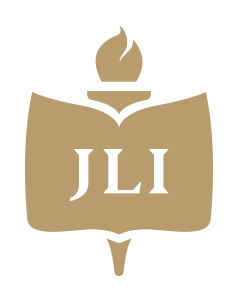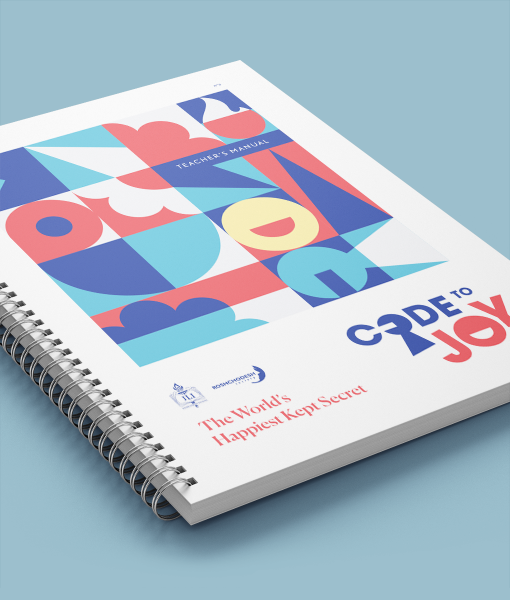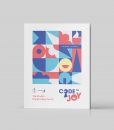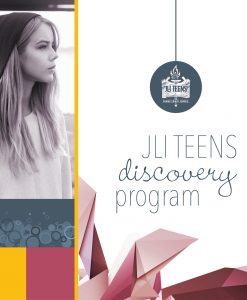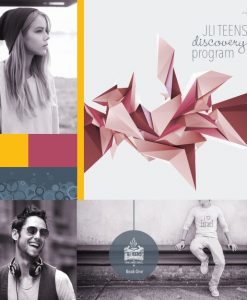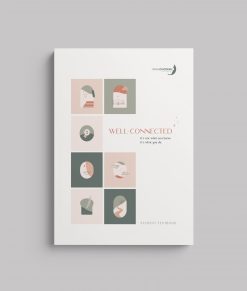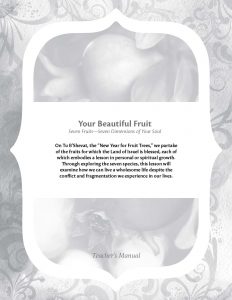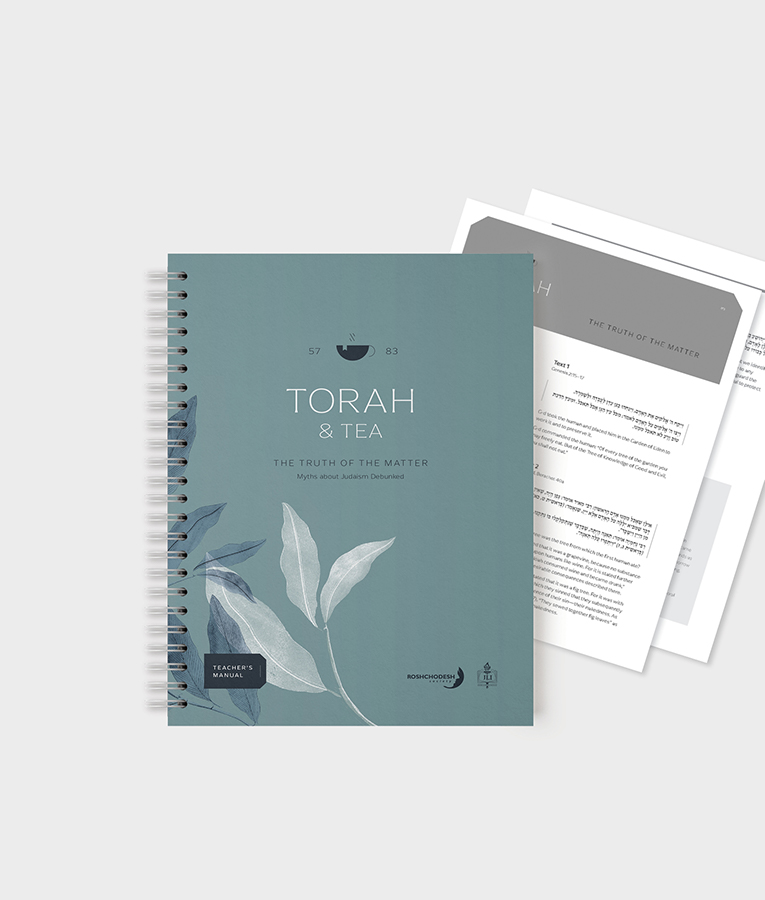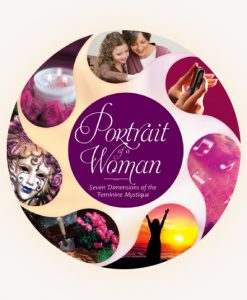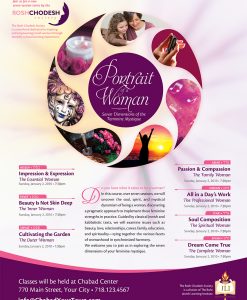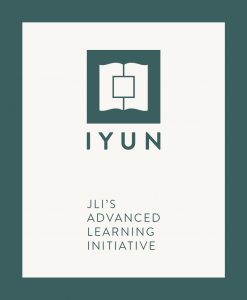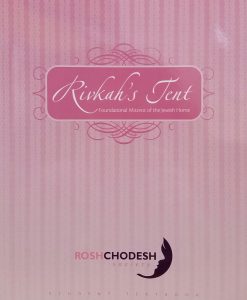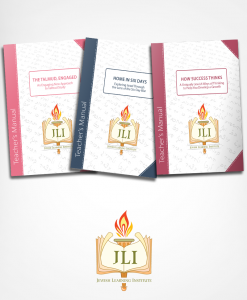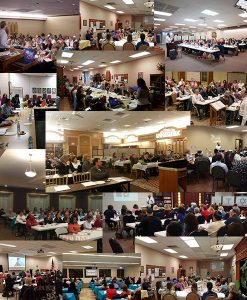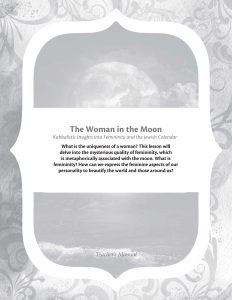Home/Audiences/Women
Rosh Chodesh Society 5781
The Rosh Chodesh Society is a global initiative that aims to transform the lives of Jewish women, their families, and their greater communities through the bonds of shared Jewish experience. Through an international network of women scholars, leaders, and educators, we provide cutting-edge adult education in tandem with monthly cultural and social programs.
Registration for the RCS 5781 curriculum, Code To Joy, is now open. Scroll down for the lesson descriptions.
Contact us for more information.
The Rosh Chodesh Society serves to fill the need for an all-encompassing, non-judgmental, state-of-the-art Jewish learning program developed by and for Jewish women. The society was founded to provide programming characterized by academic excellence and social activism.
RCS seeks to give every Jewish woman the gift of a meaningful connection to her birthright, an awareness of who she is and what she stands for, and the tools with which to access her unique talents, abilities, and inner spirit. We hope to empower a generation of proud Jewish women who will lead, inspire, and educate those around them, fostering a brighter and stronger Jewish future.
A new seven-part course is released each year, designed for monthly meetings on or about Rosh Chodesh. Each session contains a class and a social activity component.
RCS 5781 Curriculum
Code To Joy: The World’s Happiest Kept Secret
A Monthly Series of Classes for Women
It’s a question that has launched a thousand self-help seminars, a riddle that has perplexed multitudes, a mystery that enthralled the ancients: What is the secret of happiness? Jewish thought has long emphasized the importance of living with joy. But how? And can you really choose to be happy?
This extraordinary course goes beneath the surface to find answers. Synthesizing timeless Jewish wisdom and the latest findings from the field of positive psychology,we look at how wealth, meaning, trust, optimism, regret, faith, introspection,mindfulness, relationships, and ritual all interrelate with our outlook on life. Packed with spiritual insights you can apply to real life, you’ll love every minute of discover-ing the Code to Joy.
We invite you to crack the code and find the key to J-O-Y in every lesson.
Course Outline
Lesson 1
Just Over Yonder?
Finding Happiness in Life’s Gifts
We’re often told that money can’t buy happiness; joy must come from within. But let’s be honest: Are we really supposed to think that having nicer things doesn’t mean anything? And yet we all know that person who seems to have it all—and iss omehow still miserable. So which is it? Classic Jewish sources suggest that what matters most is how we appreciate our life circumstances and how regularly we express that appreciation.
Lesson 2
Journey of Yourself
Staying Honest, Humble, and Happy
Staying positive about life means staying positive about ourselves. In this second step, we look at the importance of nurturing a healthy self-concept and how to avoid negative feelings about ourselves. Oftentimes it is feelings of nihilism and excessive navel-gazing that drag us down, but they can be countered by two prime,if seemingly paradoxical, Jewish principles: that I matter as an individual—but it isn’t all about me.
Lesson 3
Job Opening: You!
What Am I Here For?
Each of us matters, because each of us has been sent into this world for a particular purpose. But how do we find out what that mission is? This lesson goes through nine different life-factors to take into account when searching to find one’s life calling.Above all, we learn that—contrary to popular misconception—living a holistic life inspired by the Torah means having a relationship with G-d in which our individual selves find expression. To this end, we employ a kabbalah-based personality test to learn how to best express our personal strengths while pursuing our life mission.
Lesson 4
Journey from Oy to Yay!
Overcoming Stress Through Positivity
Halfway through the course, we stop to learn how to start breathing easier. The Talmud has some advice for dealing with anxiety, while a Chasidic master proposes a strategy for changing the way we feel by acknowledging the power of the mind over the heart. Finally, we look at the importance of cultivating optimism and trust,learning from the inspiring example of King David and from the perspective of contemporary research.
Lesson 5
Judging Ourselves? Yes!
Perfectly Happy Being Imperfect
Jewish guilt poses an intractable problem: How can I ever be at peace if I’ve made serious mistakes in my life or if I’m upset about my character shortcomings? This extraordinary lesson flips the script by introducing central teachings from the Chasidic masters that teach us how to embrace our never-ending quest for self-improvement and find the tremendous power and meaning in that struggle. Finally,a discussion about the place of regret and remorse shows us how to experience joy in spite of the failures of our past.
Lesson 6
Joining Others = Yields
Investing in Healthy Relationships
Compelling psychological research has demonstrated the many remarkable effects of friendship on happiness and emotional well-being. We are inescapably social beings. And yet, both social science and personal experience show that loneliness,disconnection, and division are stubborn realities of life. How can we arrest this disconcerting drift apart? This class analyzes how to mitigate some of the major impediments to our interpersonal relationships—namely, cynicism, disagreement,and an inability to listen to others.
Lesson 7
Jew’s Ongoing Yearning
Discovering a Deeper Happiness
Study after study shows that leading a religious lifestyle tends to make people happier and more fulfilled. But that isn’t enough. Too often we forget that Judaism is itself supposed to be a joyful experience—not despite the many duties and strictures that come with keeping the Torah, but because of them. This final lesson reconceptualizes what our joy can look like by introducing a more transcendent form of joy that is available to each of us; although more difficult to achieve, it is crucial to our happiness because it allows for true self-actualization.
